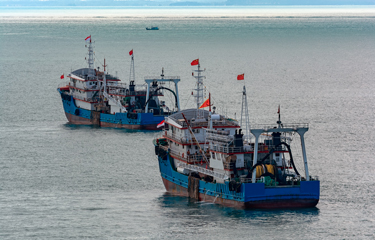The United Nations has, after days of negotiations, struck a deal that would place 30 percent of the world’s oceans into protected areas, inject more money into marine conservation, and cover access to and use of marine genetic resources.
Signed 4 March, the deal was negotiated by the delegates of the Intergovernmental Conference on Marine Biodiversity of Areas Beyond National Jurisdiction (commonly referenced by the acronym BBNJ). It is being referred to as the High Seas Treaty and is the result of almost 20 years of U.N.-facilitated talks, the U.N. said in announcing the agreement.
The deal includes nearly 200 countries as signatories and provides legal tools to establish protected areas, and helps cover environmental assessments to determine what damage commercial activities could have on the ocean before they start.
“This action is a victory for multilateralism and for global efforts to counter the destructive trends facing ocean health, now and for generations to come,” U.N. Secretary-General António Guterres said in a release.
Guterres said the treaty builds on the U.N. Convention on the Law of the Sea, and credited Singapore Ambassador Rena Lee for her leadership during the negotiations.
“Ladies and gentlemen, the ship has reached the shore,” Lee said once the delegates reached an agreement.
The High Seas Alliance – comprised of dozens of environmental groups including the Marine Conservation Institute, Greenpeace, Global Fishing Watch, Environmental Justice Foundation, and more – welcomed the treaty.
“Following a two-week-long rollercoaster ride of negotiations and super-hero efforts in the last 48 hours, governments reached agreement on key issues that will advance protection and better management of marine biodiversity in the high seas,” High Seas Alliance Director Rebecca Hubbard said.
Members of the alliance also called the treaty a victory for ocean conservation.
“The effective implementation of this landmark treaty is the only pathway to safeguard high seas biodiversity for generations to come and provides a pathway for nations to fulfill the 30-by-30 target,” The Pew Charitable Trusts Ocean Governance Project Director Liz Karan said. “Governments and civil society must now ensure that the agreement is adopted and rapidly enters into force.”
The Marine Stewardship Council called the treaty a step forward for ocean conservation, but cautioned the fishing sector needs to be a part of discussions on how it is implemented.
"A healthy, thriving ocean is essential for wild fisheries and the communities that depend on them. As states move to ratify the treaty, it is vital that the role of sustainable fishing is recognized,” MSC Chief Executive Rupert Howes said in a release. “MSC-certified fisheries – including those catching commercially and ecologically iconic species such as tuna, toothfish, and small pelagics on the high seas – demonstrate that it is possible for international fisheries to meet the highest bar for sustainability, provided effective international management, science, and monitoring is in place.”
Howes urged faster progress on protecting the oceans.
“We therefore urge nations to ratify the treaty as a matter of urgency and to recognize the role of fishers alongside policymakers, businesses, and NGOs in shaping its implementation,” Howes said. “Taking onboard these perspectives will be vital to ensuring the treaty supports the food security and livelihoods of billions around the planet, while also conserving our incredible ocean.”
Photo courtesy of Igor Grochev/Shutterstock







